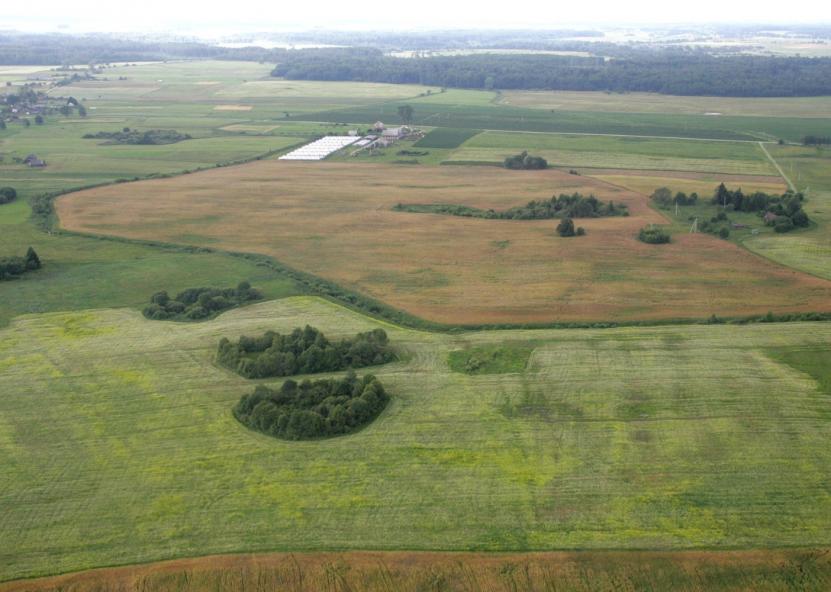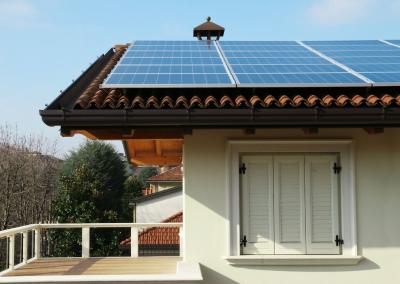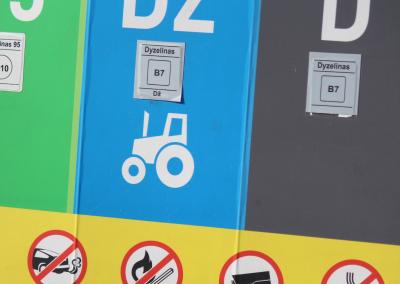Does the MAFF really not care about the fate of 30 000 farmers?
About 30 000 farmers in our country are working on bare land. Danutė Karalevičienė, head of the Lithuanian Association of Users of Barren Lands (LALU), says she misses the dialogue with the Minister of Agriculture Ignas Hofmann – the cuts in support made a few years ago are not satisfactory. „We have been asking for a meeting from the very beginning, to discuss what can be done this year, what can be done next year –. But the Ministry of Agriculture doesn't seem to care about us," said the head of the LNFA, bitterly.
Changes in the boundaries of non-native lands
„This is the black legacy of previous ministers“, – convinced D. Karalevičienė and added that at one time there were attempts to correct the situation, but unfortunately, according to the interlocutor, no one listens to the orders of outgoing ministers anymore.
In our country, according to the established methodology, wasteland is divided into two groups: higher intensity (Vnb≤32) and lower intensity (33≤Vnb≤34). In Lithuania, the new delimitation of areas with high natural handicaps was introduced in 2018. Following the introduction of these new delimitations, 69 rural districts no longer qualify for the status of less-favoured areas, as clarified by the Ministry of Agriculture (MAA).
However, the press service stressed that during the transitional period, the normal established support was granted, which was paid up to and including 2021.
Farmers operating in areas with other specific handicaps are also eligible. The MAA points out that this category includes areas of intensive karst (7 municipalities in Pasvalys r. municipality and Biržai r. municipality) and areas subject to flooding (4 municipalities in Šilutė r. municipality and Pagėgiai municipality).
Why has support decreased?
„There are several reasons for the change in support: the reduction of funding for rural development and the new boundaries of areas with natural handicaps, which came into force in 2018“, – the key reasons were identified by the Ministry of Agriculture.
Until 2023, support for farmers operating in areas with natural or other specific handicaps was available under the Rural Development Programme (RDP) measure "Payments for areas with natural or other specific handicaps".
„Additional funding was made available in 2018 following the reallocation from Pillar I of the Common Agricultural Policy (direct payments) to Pillar II (rural development) (EUR 50 million) and the allocation of an additional EUR 73.5 million by the Ministry of Finance of the Republic of Lithuania from the national envelope for the implementation of the RDP. The Ministry's press service detailed the details of the allocation of EUR 7.7 million for the measure "Payments for areas with natural or other specific handicaps", of which EUR 42.415 million was allocated to the measure "Payments for areas with natural or other specific handicaps".
Total additional funding amounted to €92.5 million. This is the reason why it has been possible to keep the level of support unchanged for some time.
Now, the Strategic Plan for Agriculture and Rural Development of Lithuania 2023-2027 provides for an annual allocation of EUR 26.1 million in support for farmers operating on non-residential land. In contrast, the CCP was allocating €54.2 million annually.
(Non-)dialogue
„The attitude towards owners of unused land is very sad and if it does not change, farmers will have to deal with it somehow themselves“, – says D. Karalevičienė.
Farmers had high hopes for the new Minister of Agriculture, Ignas Hofmanas, and hoped that as a farmer himself, he would better understand others, but now, she says, it seems that the Minister is only working for the big guys.
„I would like the Minister to talk to farmers about wastelands, peat bogs and all abandoned lands. But the Minister doesn't meet with the farmers, no matter what," said the head of the LNFA in frustration.
She also pointed out that it is not only the reduced support that is unsatisfactory, but also the fact that the Ministry is increasing the requirements, prohibiting activities on certain land, such as deep peatland or marshy land: „We are not allowed to work there – neither ploughing nor reclaiming, we can't do anything for them, but we don't get anything in return“.
Without sparing any criticism, Ms Karalevičienė was even more forceful: „Then cut off your direct payments and give them to farmers working in infertile lands. After all, those farmers are working as much as you are. Then there will be equality and we won't be in the dole queue.















































































































